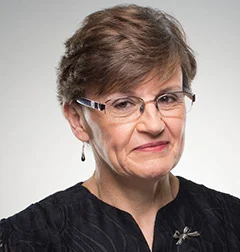
Wills and Estates Newsletter – September 2020
Published on September 10, 2020 by Adelaide Ryan, Gillian Kirwan, Grace Brophy, Josephine Heesh, Joshua Dale and Rebecca Tidswell
We have been very occupied during the last recent period assisting clients with their Estate Planning matters. The following articles comment on a selection of interesting decisions and outcomes from this work.
- Equity recognises verbal promises
- The risk of undue influence
- Balancing between children in your Will
- Signing documents during COVID isolation
- Incurring costs in a family provision claim
Josephine Heesh, Partner
Claiming an equitable interest in the property
We acted for a husband and wife in relation to a claim commenced against them by the wife’s father who was the registered proprietor of a residential property in Botany, Sydney. Our clients had resided in the property since 1996.
The father sought judgment against our clients for possession of the property and unpaid rent during their occupation of the property.
Daniel O’Brien, Partner
Grace Brophy, Solicitor
Reconveying property to father after undue influence
In a recent New South Wales case: Aslanidis v Aslanidis [2020] NSWSC 110, the Court was asked to decide on a case brought by an elderly man by his tutor against his son to have his property reconveyed to him after it was transferred to his son as a result of undue influence. The son initially claimed the property was transferred to him as a gift or as a gift conditional upon him agreeing that if and when he sold the property he would pay $100,000 of the sale proceeds to his sister.
Gillian Kirwan, Solicitor
Provided more for one child during your lifetime compared to your other child…how to treat them equally in your will?
The Supreme Court of NSW recently dismissed a claim by an adult child for further provision to be made for him out of his mother’s estate despite receiving an inheritance in the excess of $1.2 million pursuant to the terms of his mother’s will, and also receiving benefits from his parents during their lives, and despite the resources available to him: Estate Ameisen, Deceased [2020] NSWSC 528. The value of the estate is estimated at $6.78 million.
Adelaide Ryan, Associate
Witnessing Documents in the COVID-19 Age
In the current climate the legal profession has had to adapt significantly and quickly to continue to meet the needs of their clients and their obligations to the Court. This has resulted in countless video conferences in the place of face-to-face meetings and the Courts moving towards ‘Virtual Hearings’. A less spoken of, but equally important change has come in the way that legal documents can be witnessed. Recently various members of our Wills and Estates Team have successfully completed the execution of a will, enduring power of attorney and appointment of enduring guardian for a client at a hospital via audio visual link (“AVL”).
Joshua Dale, Partner
Warning: The ability of the Court to cap costs in Family Provision Claims
Litigants and solicitors alike often pursue family provision litigation under a misapprehension that legal costs will likely be covered by an order that they be paid from the estate, or out of any provision awarded by the court.
This is risky business given the Judgment handed down on 30 June 2020 by Henry J in Poche v Poche [2020] NSWSC 835.
The proceedings concerned a family provision claim where two adult sons had competing claims as plaintiff and defendant. The deceased had left an estate valued at approx. $2.3M. The bulk of the estate (over $2.2M) was left to the defendant (executor and trustee under the will). The plaintiff’s entitlement equated to just over $100,000.
The plaintiff was successful in his claim, and further provision was ordered.
The more interesting issue dealt with by Henry J was the legal costs of the parties in the proceedings.
Rebecca Tidswell, Special Counsel





